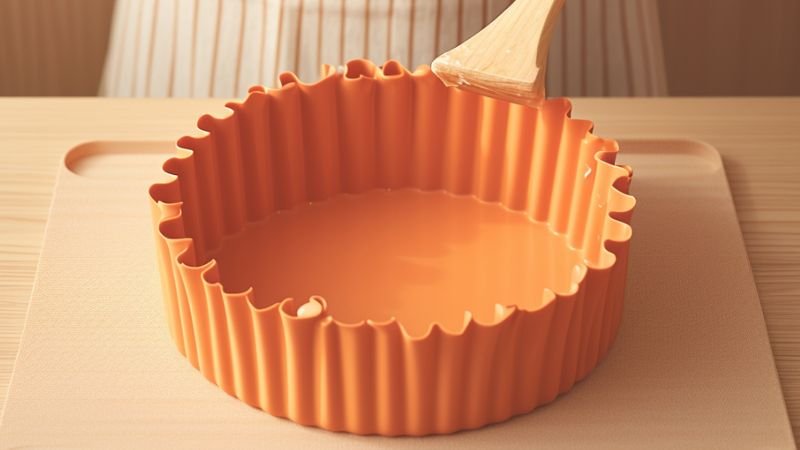Every baker knows the drill: mix, pour, bake, and the moment of truth—will it stick? With the rise of silicone baking molds, bakers everywhere are questioning their greasing habits. Traditional metal bakeware demanded a slick of butter or oil, but does the same rule apply to the modern silicone counterpart? This question isn’t just about saving a step; it’s about achieving perfection without the hassle.
The short answer: not really, but it depends. Silicone baking molds are celebrated for their non-stick qualities, meaning most of the time, greasing isn’t necessary. However, for intricate designs or recipes with a higher sugar content, a light coat of oil or butter can ensure a flawless release.
Keep reading as we dive into the nuances of silicone bakeware and how to ensure every cake comes out clean.
What Makes Silicone Bakeware Non-Stick?
Silicone’s non-stick property comes from its molecular structure, which provides a smooth surface that’s resistant to sticking. Unlike metal or glass, silicone does not require a layer of grease to release food easily. This feature is a game-changer for bakers looking for efficiency and convenience in the kitchen.
But Why Consider Greasing Sometimes?
Though silicone is inherently non-stick, certain factors can affect how well food releases from the mold. Baking temperature, recipe ingredients, and mold design can influence whether your baked goods will slip out effortlessly or need a bit of encouragement. For recipes high in sugar, like some cakes and pastries, greasing can prevent caramelization from causing sticking. Likewise, intricate mold designs might benefit from greasing to ensure every detail is captured and comes out intact.

How to Properly Grease Silicone Molds?
If you decide to grease your silicone molds, the process is straightforward. Use a pastry brush or a piece of paper towel to lightly coat the mold with a thin layer of oil, butter, or a non-stick spray. Avoid using too much, as excess grease can pool and affect the texture and appearance of your baked goods.
Can Greasing Affect the Final Product?
Yes, it can. Greasing silicone molds can alter the exterior of your baked items, giving them a slightly different crust than if baked in an ungreased mold. This isn’t necessarily a bad thing; some bakers prefer the golden hue and firmer texture that greasing can provide. It’s all about personal preference and the specific results you’re aiming for.
What Are the Best Practices for Using Silicone Baking Molds?
To get the most out of your silicone baking molds, follow these best practices:
- Check the manufacturer’s recommendations: Always see if the manufacturer suggests greasing.
- Consider the recipe: Grease based on the sugar content and desired finish.
- Test if unsure: If in doubt, do a test bake with a small amount of batter to see if greasing is necessary.
How to Clean and Maintain Silicone Molds?
Proper care will extend the life of your silicone molds. Wash them in warm soapy water or place them in the dishwasher if they’re dishwasher-safe. Avoid using sharp objects that could tear the silicone. After washing, dry them thoroughly to prevent any mold or mildew from developing.
Are There Alternatives to Greasing?
Yes, for those looking to avoid greasing altogether, consider using parchment paper as a liner, especially for larger cakes or loaves. This method ensures an easy release without altering the texture of the baked goods.
Conclusion
In most cases, silicone baking molds don’t need to be greased thanks to their non-stick nature. However, a light greasing can be beneficial for certain recipes or designs. Understanding when and how to grease silicone molds enhances your baking process, ensuring every creation is as beautiful as it is delicious.